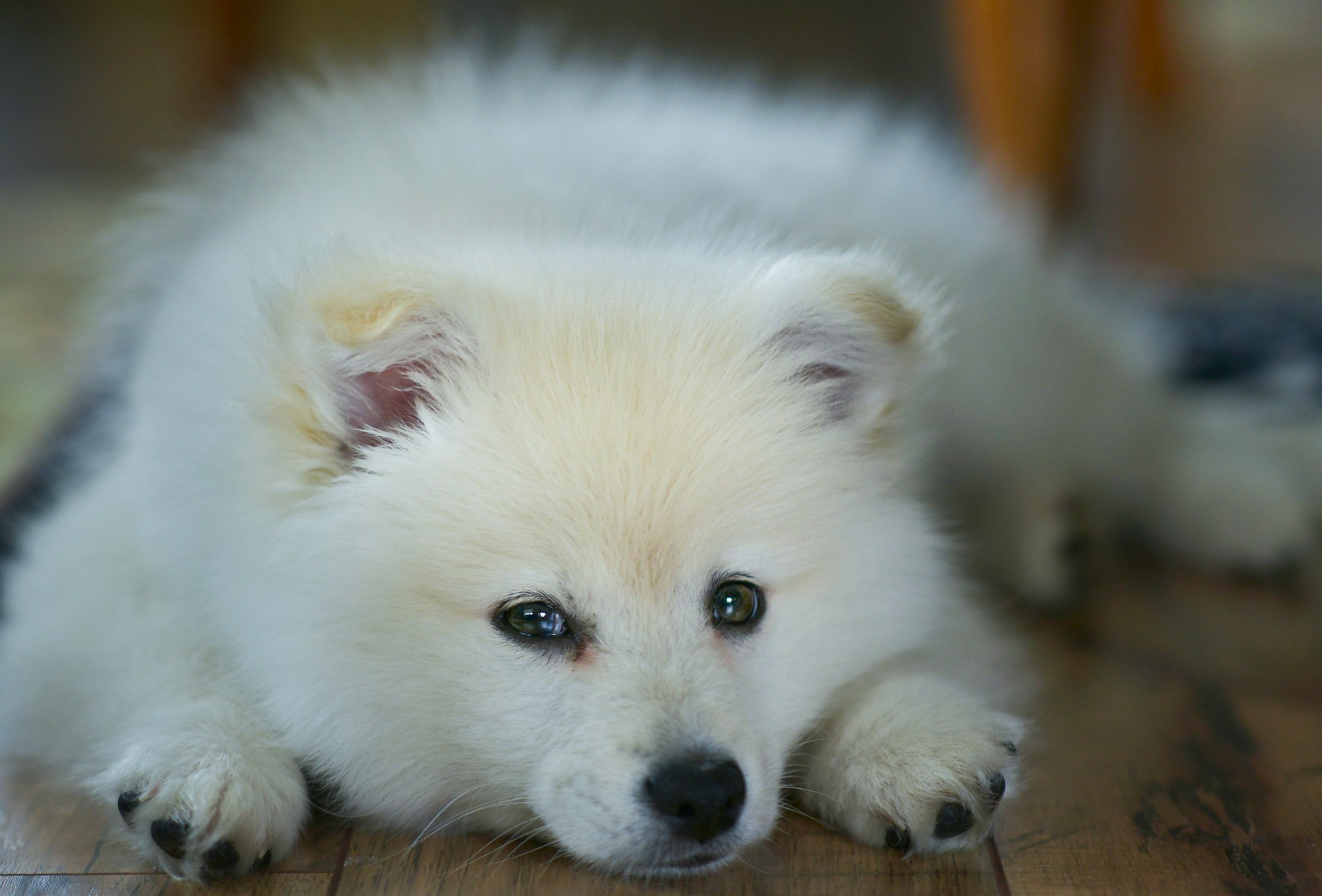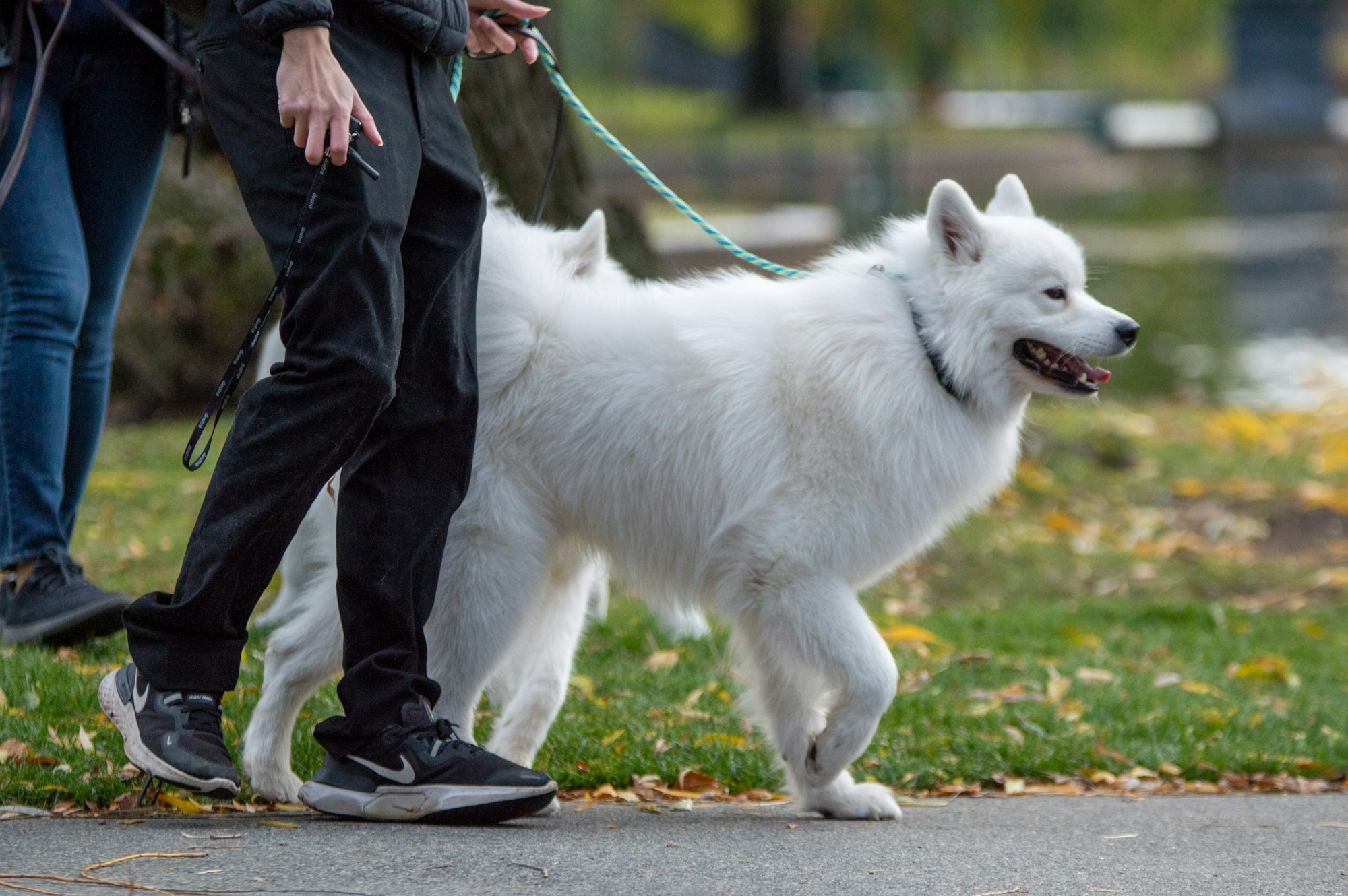Owning a Samoyed dog breed can be a delightful and rewarding experience. These fluffy and friendly companions have captured the hearts of many dog enthusiasts. However, before bringing a Samoyed into your life, it's crucial to consider the financial aspects associated with owning one. The Samoyed price can vary based on several factors. Here, we will explore the different elements that influence the cost of owning a Samoyed, allowing you to make an informed decision.

The Samoyed is a medium-sized dog breed known for its friendly nature, intelligence, and stunning white coat. They are often considered a high-maintenance breed due to their unique characteristics and specific care requirements.
Samoyed Average Pricing
When considering the cost of a Samoyed, it's critical to understand the average pricing range for this breed. Keep in mind that prices can vary depending on several factors, including location, breeder reputation, and the specific qualities of the individual dog. However, the following information can give you a general idea of the average pricing for Samoyeds in the United States.
On average, the price of a Samoyed puppy from a reputable breeder ranges from
$1,500 to $3,000. This price may increase for puppies with exceptional lineage, show potential, or unique coat colors. Puppies from champion bloodlines or with health certifications may also command a higher price.
It's worth noting that the initial purchase price is just the beginning of the financial commitment associated with owning a Samoyed. There are ongoing costs to consider, including food, grooming, veterinary care, training, and supplies. These expenses should be factored into your budget when considering the affordability of owning a Samoyed.
Additionally, if you're open to the idea of adopting a Samoyed, there are rescue organizations and shelters where you may find adult Samoyeds available for adoption at a lower cost. Adoption fees typically range from $200 to $500, which helps cover the expenses incurred by the organization in caring for the dog.
It's important to remember that while price can be an indicator of quality and responsible breeding practices, it doesn't guarantee the temperament or health of the Samoyed. Researching and finding a reputable breeder or adopting from a trusted rescue organization is crucial to ensure you're bringing home a healthy and well-cared-for Samoyed.
Before making a final decision, take the time to evaluate your budget, lifestyle, and commitment to providing a loving home for a Samoyed. Owning a Samoyed is a long-term responsibility that requires both financial and emotional dedication.
Factors Affecting Samoyed Pricing
1. Finding a Reputable Breeder
When looking to buy a Samoyed, it's crucial to find a reputable breeder. Reputable breeders prioritize the health and well-being of their dogs and follow responsible breeding practices. They invest in quality care, health testing, and socialization of the puppies, which may reflect in the price.
2. Purebred vs. Mixed Breed Samoyeds
Purebred Samoyeds, with documented lineage and registration, tend to have a higher price compared to mixed breed Samoyeds. Purebreds are more predictable in terms of appearance and temperament, making them desirable for those seeking specific breed characteristics.
3. Pedigree and Bloodline
The pedigree and bloodline of a Samoyed can impact its price. Dogs with champion bloodlines or impressive pedigrees often have higher prices due to their desirable genetic traits and potential for success in dog shows or competitions.
4. Health Testing and Certifications
Reputable breeders prioritize the health of their dogs and conduct various health tests on their breeding dogs to identify potential genetic issues. Samoyeds with health certifications, such as hip or eye clearances, may have a higher price tag due to the breeder's investment in health testing.
5. Age of the Samoyed
The age of a Samoyed can influence its price. Puppies are typically more expensive compared to adult dogs. This is because puppies require additional care and training, and they have a longer life expectancy ahead of them. The demand for puppies is usually higher as well, contributing to their higher price tag.
When purchasing a Samoyed puppy, it's essential to consider the responsibilities that come with raising a young dog. Puppies require house training, socialization, and obedience training to grow into well-behaved older dogs. The investment of time and effort in raising a puppy reflects in their cost.
On the other hand, adult Samoyeds may have a lower price. Some owners may choose to rehome their adult Samoyeds due to various reasons, such as changes in their living situations or personal circumstances. Adopting an adult Samoyed can be a more affordable option, and it provides a loving home for a dog in need.

It's essential to assess your lifestyle and preferences when deciding between a Samoyed puppy and an adult dog. Puppies require more attention and training, while adult dogs may already have some training and socialization. Ultimately, the age of the Samoyed should be taken into consideration when determining the overall cost of ownership.
6. Gender Differences
In some dog breeds, gender can play a role in determining the price of a dog. However, when it comes to Samoyeds, gender differences usually have minimal or no impact on their price. The price of a male Samoyed is typically similar to that of a female Samoyed.
Unlike certain breeds where males may be used for breeding purposes and thus have a higher price, Samoyeds are generally priced based on other factors such as pedigree, health certifications, and overall quality.
The decision of choosing a male or female Samoyed should be based on personal preference and compatibility with your household dynamics. Both genders can make excellent companions and good family dogs, so it's demanded to focus on finding a healthy and well-socialized Samoyed rather than prioritizing gender alone.
Remember to consider other aspects such as temperament, energy level, and compatibility with your existing pets when selecting a Samoyed, regardless of gender. The price should not be the sole determining factor, but rather the overall suitability of the dog for your lifestyle and preferences.
7. Coat Color and Markings
Samoyeds are known for their striking white coats, but variations in coat color and markings can exist. Certain rare or unique colorations, such as biscuits or creams, may be priced higher due to their novelty. However, coat color alone should not be the sole factor in determining the worth of a Samoyed.
8. Training and Socialization
Well-trained and socialized Samoyeds are often in high demand. Dogs that have undergone professional training or have received obedience titles may have a higher price. Proper training and socialization contribute to a well-behaved and balanced Samoyed, making them more desirable to potential owners.
9. Upkeep and Maintenance Costs
Owning a Samoyed comes with ongoing expenses. Upkeep and maintenance costs, such as vaccinations, flea prevention, and regular check-ups, should be considered. These costs are essential for keeping your Samoyed healthy and happy throughout its life.
10. Vet Care and Vaccinations
Regular veterinary care is crucial for the well-being of your Samoyed. Routine vaccinations, annual check-ups, and preventive treatments can add to the overall cost of owning a Samoyed. It's required to budget for these necessary medical expenses.
11. Food and Nutrition
Proper nutrition is vital for Samoyed's health and well-being. High-quality dog food tailored to the breed's specific needs may come at a higher cost. Additionally, treats, supplements, and dietary adjustments for special requirements should be factored into the expenses.
12. Grooming and Professional Care
Samoyeds have a luxurious double coat that requires regular grooming to keep it clean and tangle-free. Professional grooming services, including regular brushing, bathing, and occasional trims, are essential for maintaining their coat's health and appearance.
13. Accessories and Supplies
Various accessories and supplies are necessary for the comfort and care of your Samoyed. These can include a leash, collar, food and water bowls, puzzle toys, bedding, a dog treadmill, and crates. The initial investment in these items should be considered when calculating the overall cost of owning a Samoyed.

14. Additional Considerations
When budgeting for a Samoyed, it's needed to consider other potential expenses, such as pet insurance, training classes, dog daycare, boarding, and unforeseen veterinary emergencies. Being financially prepared for these situations ensures that you can provide the best care for your beloved Samoyed.
15. Show Quality vs. Pet Quality
Breeders often classify Samoyed puppies as either "show quality" or "pet quality." Show-quality puppies possess the desired characteristics and conform closely to breed standards. They are typically more expensive due to their potential in the show ring and for breeding purposes. On the other hand, pet-quality puppies are just as healthy and loving but may have minor cosmetic deviations from the breed standard, making them more affordable.
16. Geographical Location
Geographical location plays a role in Samoyed pricing. The cost of living and economic factors vary across regions, which affects the expenses incurred by breeders. In areas with higher living costs, the price of Samoyeds might be higher compared to regions where the cost of breeding and raising dogs is lower. It's essential to consider this when researching prices.
17. Demand and Popularity
The demand and popularity of Samoyeds also impact their pricing. If Samoyeds are trendy or in high demand in your area, breeders might charge a premium. Factors like social media exposure, celebrity ownership, and positive breed reputation can influence the popularity of Samoyeds and consequently affect their pricing.
18. Rescue Organizations and Adoption Fees
Adopting a Samoyed from a rescue organization is an alternative to buying a puppy from a breeder. Rescue organizations often charge adoption fees to cover the costs of rescuing, rehabilitating, and providing necessary medical care for the dogs in their care. The adoption fee is typically lower than the cost of buying a Samoyed puppy from a breeder, making it a more affordable option for some individuals.
19. Beware of Puppy Mills
When researching Samoyed pricing, it's essential to beware of puppy mills. Puppy mills are commercial breeding facilities that prioritize profit over the well-being of the dogs. Dogs from puppy mills are often poorly bred, raised in substandard conditions, and prone to health and behavioral issues. While their initial prices may be lower, the long-term costs associated with their care can far exceed those of a well-bred Samoyed.
20. Responsible Ownership and Lifetime Expenses

Responsible ownership of a Samoyed involves providing proper care, attention, and training throughout its lifetime. It's crucial to be prepared for the long-term expenses associated with owning a Samoyed, such as annual vaccinations, grooming, quality nutrition, and potential medical costs. Understanding the lifetime expenses will ensure that you can provide the best care for your furry companion.

Conclusion
The Samoyed price can vary significantly based on factors such as breed purity, pedigree, health certifications, age, gender, dog coat color, training, and ongoing maintenance costs. By considering these aspects, you can make an informed decision and ensure that you are financially prepared to provide a loving and fulfilling home for your Samoyed.
FAQs
1. Q: Are Samoyeds expensive to maintain?
A: Samoyeds can be considered high-maintenance dogs due to their grooming needs and potential health issues. Owners should be prepared for ongoing expenses.
2. Q: Where can I find Samoyeds for adoption?
A: Samoyed rescue organizations, animal shelters, and breed-specific rescue groups are good places to start when looking to adopt a Samoyed.
3. Q: Do Samoyeds have any specific health concerns?
A: Samoyeds can be prone to certain health issues, including hip dysplasia, progressive retinal atrophy, and autoimmune diseases. Regular vet check-ups are necessary.
4. Q: Can Samoyeds live in hot climates?
A: Samoyeds have a thick double coat that is better suited for colder climates. In warmer regions, it's crucial to provide them with ample shade and cool environments.
5. Q: Are Samoyeds good with children?
A: Samoyeds are known for their gentle and friendly nature, making them generally good with children. However, supervision and proper socialization are significant for any dog-child interaction.
6. Q: Can I find cheaper Samoyeds from online classifieds?
A: While it's possible to find Samoyeds at lower prices through online classifieds, it's crucial to be cautious. These sources may not provide the same level of health guarantees or breeding standards as reputable breeders, increasing the risk of potential issues in the future.
7. Q: How can I find a reputable Samoyed breeder?
A: To find a reputable Samoyed breeder, start by contacting the Samoyed Club of America or other recognized breed clubs. They can provide you with a list of breeders who adhere to ethical breeding practices and prioritize the health and well-being of their dogs.






